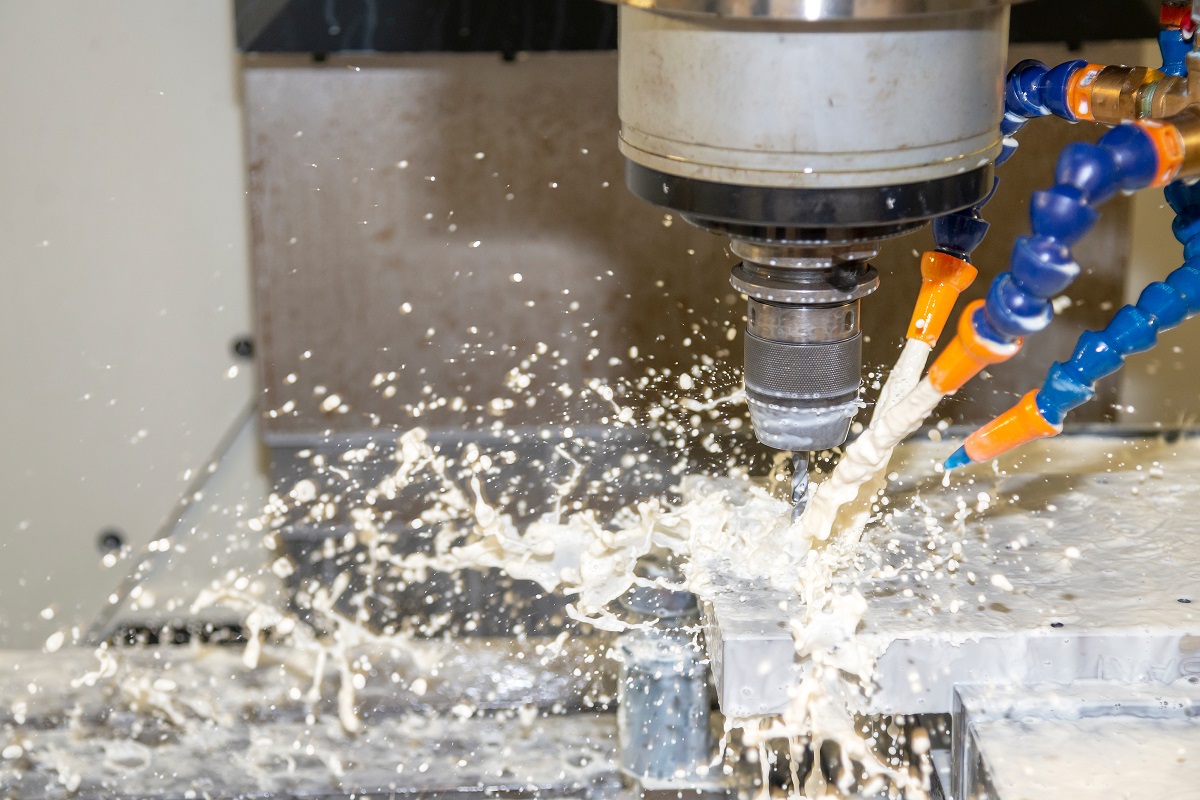SHANGHAI – Chinese metalworking fluid suppliers will face many challenges in the coming years, including stricter health and safety laws, weak research and development capability and a declining economy, industry insiders said at an industry conference held here May 7.
Safety is now the priority for Chinas chemical industry, especially after the recent tragedy, Li Jiusheng, a researcher at the Shanghai Advanced Research Institute, said at the China Metalworking Fluid forum, referring to a March explosion at a chemical plant in Xiangshui County that killed 78 people and wounded more than 600. Preliminary investigations blamed the explosion on poor compliance with hazardous chemical regulations. China will continue to strengthen [health and safety] laws and require high-level compliance.
Li went on to say that China will likely step up supervision of chemical suppliers and impose heavier punishments on violators. Metalworking fluid manufacturers will have to invest in [health and safety] compliance, he said, adding that the extra cost may burden small suppliers.
The forum was organized by Shanghai Intex.
As China moves towards high-tech, high value-added manufacturing, more manufacturers across a variety of industries are adopting new equipment to achieve high precision machining of many new materials, including new types of alloys and advanced composite materials. However, these manufacturers have limited options when it comes to metalworking fluids.
The high-speed machining process requires more advanced fluids to cool down the equipment, clean and protect surfaces. They also have to be safe and eco-friendly. We dont see many of these fluids in the market, Li said, adding that minimal R&D capability among most Chinese fluids suppliers leaves the lucrative market to foreign suppliers.
The reality is we dont have the core technologies, and our research on high-performance additives is at the infant stage, Li said.
Some domestic companies do invest in R&D. One of them is Shenzhen-based Francool Technology. The company, which hired an international team of technology consultants, is looking into new emulsifier additives, as well as the benefits of certain copper compounds in cutting oils.
Fan Chengli, general manager at a Francools subsidiary in Kunshan, Jiangsu province, said the company performed many tests on cutting oils containing organic copper and saw positive results in terms of surface protection of aluminum alloy and magnesium alloy.
The outlook for fluid suppliers is not helped by the fact that Chinas economy is slowing down, which is affecting many industries that use metalworking fluids. The automobile industry, for example, sold 1.7 million passenger cars in the first quarter of 2019, down 12.1 percent year-on-year, according to Shanghai-based China Passenger Car Association.
A weak domestic market, along with the intense U.S.-China trade war, hit the steel industry, the major metalworking fluid user, said Diao Li, a vice director at China Iron and Steel Association.
The U.S. tariff may have limited impact on China steel exports, but it will affect steel-using industries, especially the companies selling products to the U.S., Diao said.
The United States on May 10 raised its tariff from 10 percent to 25 percent on over 5,000 Chinese-made goods, including many products made of steel such as building materials and bicycles. The steel industry itself may suffer little from the tariff as China sells only 1.5 percent of its entire steel output to the U.S., according to the Beijing Lange Steel Information Research Center.
In addition, China is also facing great pressure on its steel excess inventory, so China will continue to reduce its steel production, Diao continued.
There is a silver lining, however, insofar that China will keep investing in infrastructure and urbanization programs, Diao said.
All the buildings, airports and railways will consume a large amount of steel, which obviously will benefit metalworking fluid suppliers, he said.
Photo: Pixel B/Shutterstock
